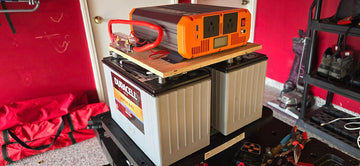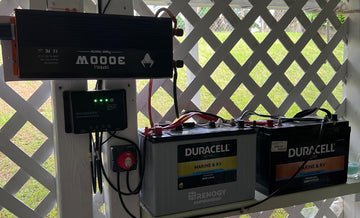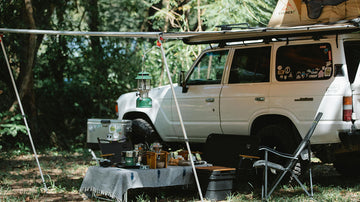The advent of lithium-ion batteries has revolutionized the world, turning them into an integral part of our daily lives. According to research, lithium-ion batteries will account for more than 70 percent of the global electronics market in 2020. In the field of portable electronic devices, lithium-ion batteries have become the first choice.
In the electric vehicle (EV) industry, the impact of lithium-ion batteries is even more significant. Lithium-ion batteries play a crucial role in the shift towards sustainable mobility. Its superior energy storage capacity reduces carbon emissions while providing the necessary power for EVs. According to a report by the International Energy Agency, global sales of electric vehicles will reach 3.1 million units in 2020, a significant 41 percent increase over the previous year. Electric vehicles are becoming an environmentally friendly alternative to traditional internal combustion engine vehicles.
Now, follow me to discover how lithium-ion batteries work!
The Structure of a Lithium-ion Battery
To understand how a lithium-ion battery works you must first know how it is constructed. The following components are important parts of a lithium-ion battery:
Electrodes: The anode usually uses lithium metal oxide as the active material, and the most common anode material is lithium cobalt oxide (LiCoO2) which has high energy density and long cycle life.
The cathode, on the other hand, consists of graphite material, which is a carbon material that forms a layered structure with good electrical conductivity and stability. These electrodes are responsible for storing and releasing lithium ions during the charging and discharging cycles of the battery.
Electrolyte: The electrolyte separates the anode and cathode of the battery. During charging and discharging, the electrolyte facilitates the movement of lithium ions between the anode and cathode. It acts as an ion transport medium and prevents direct contact between the electrodes. Common types of electrolytes are gel electrolytes, polymer electrolytes, and organic solvent electrolytes. The different types of electrolytes depend on the specific needs of the application, and operating temperature, safety, and performance requirements also need to be considered.
Separator: The separator is a key component placed between the anode and cathode. It prevents direct contact between the electrodes to avoid short circuits and situations that could lead to battery failure or safety issues, while the separator allows lithium ions to flow back and forth between the cells, inhibiting the movement of electrons. To minimize resistance and energy loss lithium-ion battery separator is very thin and has a porous structure. The separator also has good chemical stability and sufficient mechanical strength for long-term use in batteries without degradation and rupture.

So what are the exact steps of how these components work?
Charging Process of a Lithium-Ion Battery
During the discharge process, before charging begins, lithium ions in the anode material have already reacted and been released to form lithium vacancies, and lithium ions in the cathode material have been adsorbed to form a lithium intercalation compound.
Lithium-Ion Migration
Charging begins when an external power source is connected to the battery and provides current to apply a higher voltage to the anode, and the cathode material of the battery is driven to begin de-embedding lithium ions. Under the action of the electric field, lithium ions diffusely migrate towards the anode and are re-inserted into the lithium vacancies in the anode material through the electrolyte and the diaphragm, and the structure of the anode material changes to accommodate more lithium ions. At the same time, the lithium ions in the electrolyte are dissolved through the electrolyte, the cathode material accepts the lithium ions from the electrolyte, and the lithium vacancies are filled to form a compound while releasing electrons. In this process, different chemical reactions occur at the anode and cathode. These chemical reactions enable the migration of lithium ions and allow the battery to store electrical energy.
The external voltage is critical and determines the charge rate and charging efficiency of the battery. Higher voltages can accelerate the migration of lithium ions, but they also increase the heat generation of the battery. Therefore, the power supply voltage needs to be selected appropriately during the charging process to achieve optimal charging performance and battery life.
Discharging Process of a Lithium-Ion Battery
In contrast to the charging process, when the battery is connected to an external device, the lithium ions at the anode undergo an oxidation reaction and begin to de-insert. That is, they leave the lithium-ion intercalation compound and migrate toward the cathode by ion diffusion in the electrolyte. At the same time, the cathode material receives lithium ions from the electrolyte and undergoes a reduction reaction to form the compound. Electrons are released and flow from the anode to the cathode, generating an electric current and completing electrical energy transfer. During discharge, the structure of the anode material changes to release more lithium ions. These chemical reactions realize the energy stored in the battery is released.
The size of the external load determines the magnitude of the discharge current, which in turn affects the discharge rate and power output. By choosing the impedance of the external load appropriately, the regulation of the battery discharge performance can be realized.

When we use lithium-ion batteries, we need to consider the following elements that affect battery performance and safety:
First, the discharge rate should be moderate; a high discharge rate will lead to an increase in the rate of chemical reactions in the battery, resulting in high temperatures in the internal motor and electrolyte of the battery, thus reducing the capacity and cycle life of the battery. Lithium-ion batteries should not be used beyond the maximum discharge rate specified in the battery specifications and parameters. The battery management system (BMS) and protection circuitry monitor the discharge process to ensure that it is within safe limits.
In addition, temperature control is critical. The performance and stability of lithium-ion batteries are affected at high temperatures, which can lead to overheating, short circuits, and even the risk of explosion and fire. At low temperatures, the migration rate of ions and the rate of electrochemical reactions are reduced, and the capacity is attenuated. The increase in internal resistance caused by low temperature will also limit the discharge rate of the battery. Therefore, a perfect temperature management system is one of the important safety guarantees for lithium-ion batteries in applications.
Advantages of Lithium-ion Batteries
Higher Energy Density
Energy density refers to the amount of energy stored per unit volume or weight of a battery. Compared to other chemical batteries, lithium-ion batteries are smaller and lighter but store more energy. Everything from smartphones and laptops to electric cars and wearable devices can run for long periods between charges thanks to the superior energy density of lithium-ion batteries. As a result, users can also achieve greater productivity and convenience when using these devices. Lithium-ion batteries have transformed the landscape of portable electronics and have become the go-to choice for powering our modern lifestyle.
Longer Life Span
Another significant advantage of lithium-ion batteries is their longer service life. Unlike older battery technologies, lithium-ion batteries do not have a memory effect (a decrease in capacity due to incomplete charge cycles). They can be charged and discharged in any state of charge without negatively affecting their overall capacity. There is also no significant degradation in the life of lithium-ion batteries after many charge and discharge cycles, and they maintain functionality and reliability over a longer period. This long life saves money for consumers, who can use their devices for years without having to replace the batteries. It also promotes a greener way of storing energy and reduces the amount of e-waste generated by discarded batteries.
With technological innovations and advances, lithium-ion batteries will have a higher energy density, longer service life, and expanded application areas. We can expect lithium-ion batteries to play a more important role in consumer electronics, electric vehicles, and renewable energy systems, creating a more sustainable and electrified future for us.













